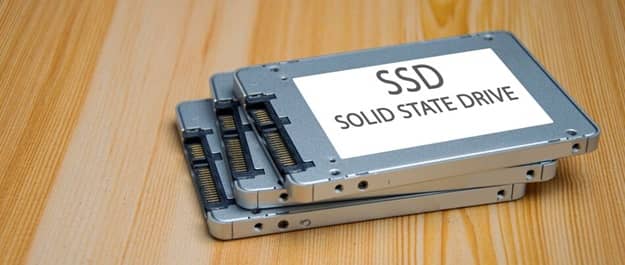It is a storage device that computers and web hosts use. SSDs use flash memory chips to store data. They don’t have any moving parts. HDDs, or Hard Disk Drives, are different from this. HDDs work with read/write heads and moving disks. An SSD is faster and more stable because it has no moving parts.
Speed is essential for web hosting. Choosing between SSD and HDD can change how fast a website works. These days, SSDs are the best choice for many hosting companies. This piece discusses SSD storage and how it improves hosting.
Understanding SSD Storage
SSDs store data using NAND flash memory. SSDs don’t have spinning disks or other moving parts like regular hard drives. On the other hand, memory chips keep information even when the power is off. With this technology, you can get to things faster. SSDs can send data almost quickly when a computer asks for it.
Because of its speed, this feature is handy in many situations. SSDs come in several different types. SSDs with the SATA port can talk to each other. They’re popular because they’re good value for the money. SATA SSDs are an excellent way to improve older computers.
On the other hand, NVMe SSDs offer much faster speeds. NVMe SSDs join directly to the hardware through the PCIe link, which allows data to be sent more quickly. This straight link is excellent for fast jobs like editing videos and playing games.
M.2 SSDs are small and can be stored in tight areas. Though smaller than NVMe SSDs, they still have the same speed benefits. So, they can be used on computers and very small PCs. Because of their design, SSDs can be used in a wide range of devices.
Benefits Of SSD Storage In Web Hosting
Enhanced Speed And Performance
SSD storage makes site hosting much faster and better than it does. SSDs make it much easier to retrieve data than standard HDDs. This makes web pages run faster, which improves the user experience. Users expect to be able to get to information quickly, and SSDs always do this. Websites that load faster also have lower “bounce” rates, which keep users interested. The general speed of websites improves, which improves exchanges and makes people happier.
Better User Experience
Using SSDs for web hosting improves users’ experience. Websites load faster, so users don’t have to wait as long. A website that loads quickly attracts people and makes them want to look around more. Better speed also makes reading easier and faster, letting you move between pages more quickly.
This not only makes people happier but also makes them more likely to come back. To keep people, you need to give them a good experience.
Scalability And Flexibility
SSD storage is very flexible and scalable when used in web hosting settings. Website traffic numbers change all the time, especially during busy times. SSDs are very good at keeping speed levels even when there are sudden spikes in traffic. Businesses can grow without thinking about slowdowns because they can change. SSDs can run many different programs, from accessible websites to complicated systems. Because of this, they are perfect for a wide range of hosting options that meet the wants of other businesses.
Increased Reliability And Uptime
One significant benefit of SSD storage in web hosting is its reliability. Because they don’t have any moving parts, SSDs fail less often than HDDs, leading to better data protection and accuracy. Computer crashes usually happen less when dependability increases and websites decrease less frequently. Businesses that depend on their online visibility need to make sure they have consistent service. SSDs always help ensure that websites are always available to users.
SSD Storage And Its Impact On Different Hosting Types
Shared Hosting

Many websites share the same computer resources in shared hosting settings. When SSDs are used in this setup, everyone can access their info faster. The result is better speed, even when traffic is heavy. Websites stored on SSDs can load fast, which makes the experience better for everyone.
VPS Hosting
With VPS hosting, users get their tools, giving you more control over speed. Adding SSD storage to VPS settings makes them much faster and more efficient. Users notice that pages load quicker and resources are better managed.
This improvement makes it easier for different apps to work together, which is perfect for businesses that need solid performance.
Dedicated Server Hosting
With dedicated server hosting, one client can access the server’s tools. SSDs improve the speed of apps that use many resources when used this way. Websites and apps work better when they can get information faster. This shortens reaction times, which is very important for companies that depend on high-performance skills for their operations.
Cloud Hosting
SSDs speed data movement between computers in cloud storage. Quick access to saved data ensures a smooth user experience, even when demand changes. SSDs also make it possible to add more storage in the cloud. This adaptability lets companies grow without lowering speed, ensuring customers on all devices can always rely on the service.
Conclusion
SSD storage has changed the way site hosting is done. The technology is better than regular HDDs in many ways. Users have better experiences when pages load faster. This might help your site rise higher in search engines. There is also a strong point in reliability. SSDs are less likely to fail and keep data more securely. This is very important for maintaining service.
SSDs are suitable for many types of hosting. Performance improves for shared, VPS, dedicated, and cloud hosting simultaneously. It is essential to pick the right server option. Websites need to work quickly and reliably. SSDs are a good choice for these tasks. As time goes on, SSDs are expected to become even more common. They are the way of the future when it comes to web hosting.

